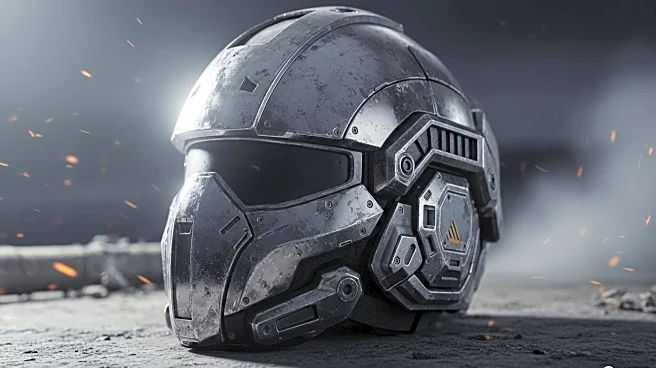What is the story about?
What's Happening?
Battlefield 6 developers have made a clear statement regarding their approach to game design, emphasizing a commitment to realism over trend-chasing. In a recent interview, Christian Buhl, the technical director, expressed the team's intention to maintain a gritty and realistic shooter experience, contrasting with other games like Fortnite that embrace fantastical elements. This stance comes amid a broader industry shift, as seen with Call of Duty's reversal on fantastical skins following backlash. Battlefield 6 aims to offer a grounded aesthetic, focusing on camo patterns and tactical gear, as demonstrated in the Road to Battlefield 6 event in Battlefield 2042.
Why It's Important?
The decision by Battlefield 6 developers to prioritize realism over trend-driven designs reflects a significant stance in the gaming industry, where live service games often rely on cosmetic sales. This approach could influence consumer expectations and market dynamics, potentially attracting players seeking a more authentic military shooter experience. It also highlights a divergence in strategy among major franchises, with Battlefield opting for a distinct identity that may appeal to a niche audience. The move could impact EA's revenue strategies, as resisting crossover opportunities might limit potential earnings from cosmetic sales.
What's Next?
As Battlefield 6 continues to develop, the team may face challenges in balancing their commitment to realism with the commercial pressures of the gaming industry. Stakeholders, including players and investors, will be watching to see if EA maintains this direction or adapts over time. The upcoming release of Battlefield 6 will be crucial in determining the success of this strategy, and the reception of the Road to Battlefield 6 event skins will provide early indicators of consumer response.
Beyond the Headlines
The emphasis on realism in Battlefield 6 could spark discussions about the ethical implications of depicting military scenarios in video games. It may also influence cultural perceptions of warfare and the role of video games in shaping public understanding of military operations. This approach could lead to long-term shifts in how military-themed games are developed and marketed.















